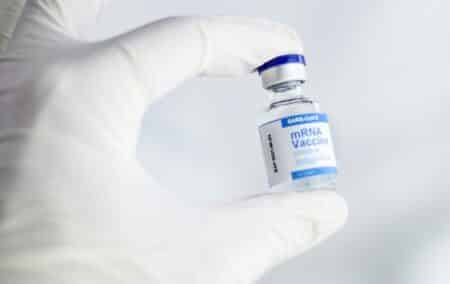In a previous column, I wrote a glowing recommendation for the mRNA Covid-19 vaccine. I am now going to backtrack a bit – just a bit. I must be more cautious.
Historically, vaccinations have been a wonderful boon. I still think the Covid-19 vaccines will do far more good than harm. I’d take one myself. But some doubts have been crowding in.
My own training is in physics and engineering. I have none in biology. In the controversy over climate change, I can say with complete confidence that there is no climate crisis, and that rising CO2 will do nothing but good. It will have little if any effect on the climate and a wonderful effect on plants. In the controversies over Covid-19, I can say nothing with confidence.
Here are two questions to illustrate my difficulties in knowing. Which of the following is true?
1. Eating lemons will protect you from this deadly disease.
2. Eating beetroot will protect you from this deadly disease.
Both might seem sensible or ridiculous. In the first case, the deadly disease was scurvy, and the statement was made by Dr James Lind in 1747. As a ship’s surgeon in the Royal Navy, he was investigating a terrible disease that had killed hundreds of thousands of sailors, sometimes wiping out two thirds of the crew on a long journey.
He experimented with various diets and found that citrus fruits prevented the disease. This was because they contained vitamin C, which all animals need, but which humans, unlike most other animals, cannot make themselves. (The rats and cats on the ships never got scurvy because they made their own vitamin C.) It took the Royal Navy 42 years to implement his cure, because it seemed so cranky.
Medical intervention
In the second case, the deadly disease was AIDS, and the statement was made by South Africa’s then Health Minister Dr Manto Tshabalala-Msimang, in 2006. It was destructive nonsense. AIDS is one of the few diseases that healthy living cannot overcome. You need medical intervention.
Sometimes the cranky cure (such as curing gastric ulcers with antibiotics) turns out to be valid, but usually not. Most of the conspiracy theories about the dangers of certain medicines are wrong, but some are right. How do we know? Only by long and tedious scientific observation.
In the Covid debates, the proponents on all sides are usually highly qualified and experienced (unlike the climate debate, where the alarmists seldom have any qualifications in physics). Whom can we trust? I’ve lost trust in some of the highest medical authorities, including Dr Fauci, head of the USA’s National Institute of Health, and The Lancet, until now probably the world’s most distinguished medical journal.
Where did the Covid-19 virus come from? Viral diseases have passed from one species to another since the beginning of life on Earth, and this might have happened with Covid-19. The virus might have passed from bats to humans in China.
But increasing evidence suggests that the virus might have been produced by ‘gain-of-function’ experiments (tinkering with the virus to make it more virulent) in the Wuhan laboratory in China, and escaped by accident to contaminate the whole world, causing over 3 million deaths. At first, the medical authorities denied that any such thing was possible. Now they are admitting not only that gain-of-function was being done in Wuhan but that they had helped to fund it. In layman’s terms, they had been lying.
Assumed to be safe
The vaccines against Covid-19 were developed with lightning speed. I raved about them. They were an extraordinary achievement for medical science. A distinguished scientist, Dr Shane Crotty, persuaded me that the mRNA vaccines against Covid could be assumed to be safe even though they had only been tested for a few months.
Then I heard reports of young men getting blood and heart problems after vaccination. I heard of problems with pregnant women. I have heard anecdotes from people I know about sudden illnesses after vaccination. I heard a distinguished scientist, Dr Vanden Bossche, saying that the vaccines could be dangerous because, while strengthening the immune system against specific pathogens, they might weaken it against more numerous others. I heard equally distinguished scientists countering Bossche, and thought them more convincing. The only way we shall know is by watching what happens with vaccinated people over a period of years.
Meanwhile, there is a perfectly safe, cheap and effective drug against Covid-19, Ivermectin. It has been used to combat infections since 1981 (40 years ago), with an unparalleled safety record. The South African government’s warnings against Ivermectin seem to have no scientific justification. It has had a far better-established safety record than any Covid-19 vaccine. You wonder why there has been such reluctance by the authorities to promote Ivermectin against Covid when there is such haste to promote vaccines.
Ignore my uninformed advice, but here it is. Nobody under 30 and no pregnant women should get the Covid vaccine. Take it if you are over 30. But, if you are tested positive for Covid-19, you might be better off with Ivermectin and a sensible combination of cheap and proven drugs, which are readily available. Speak to your doctor.
[Image: Spencer Davis from Pixabay]
The views of the writer are not necessarily the views of the Daily Friend or the IRR
If you like what you have just read, support the Daily Friend

